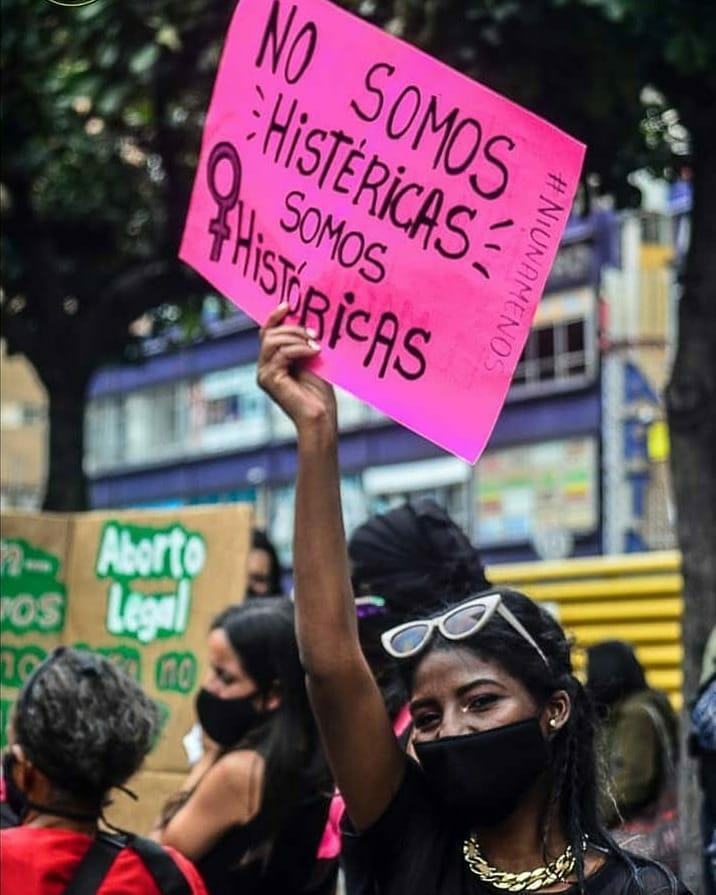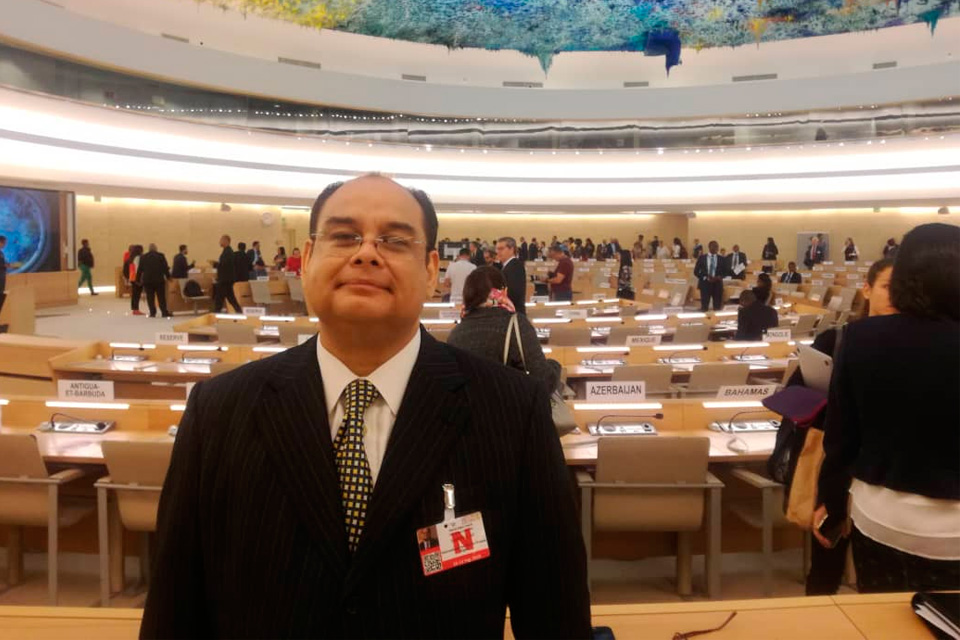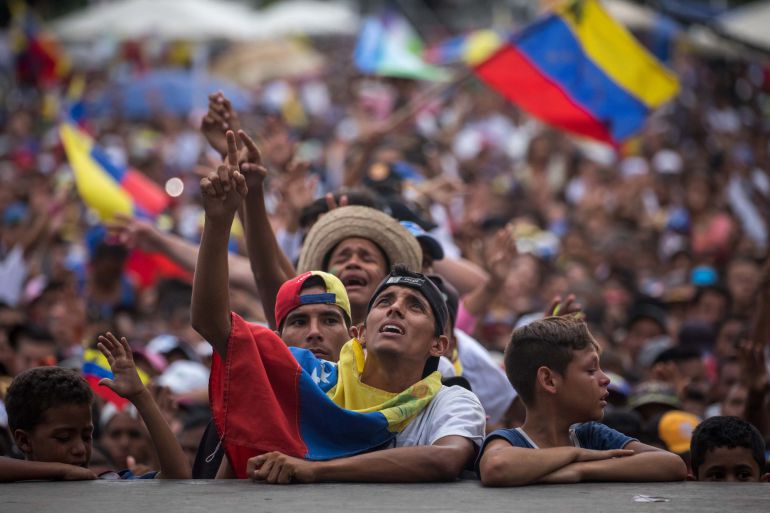First, it was the political parties, then trade union organizations such as the Bolivarian Farmers Federation of Venezuela, and now the Supreme Court of Justice has begun to target social and charity groups. At least this is the impression left by the ruling of Venezuela’s Highest Court of dissolving the board of directors of the Venezuelan Red Cross, replacing it with businessman Ricardo Cusanno and ordering a restructuring.
The measure was adopted by the Constitutional Chamber on August 4 through ruling No.1057, in the admission of a request filed 48 hours before by the regime’s Attorney-General Tarek Williams Saab for the protection of the general and collective interest through a precautionary measure that enables the Chamber to temporarily intervene the humanitarian organization founded in 1895 to facilitate the investigation of the alleged mistreatment of volunteers and workers and irregular management of resources by the directors of the organization.
Among the Chamber’s considerations of the reasons for ruling on the dismissal of the Venezuelan Red Cross board of directors, headed by Mario Villarroel, the sentence drafted by Justice Tania D’Amelio explains that
“It is of the utmost national interest to guarantee that this humanitarian institution continues in full operation and, therefore, ensure that the actions of the Venezuelan National Committee are consistent with the spirit and principles advocated by this prestigious institution with a long history at a global level and that the work of the aforementioned committee is directed at the service of the Venezuelan population”,
The Chamber considered that the dismissal of the board was an essential measure to achieve the objectives of “ensuring an internal dynamic that favors the search for the truth; avoiding possible acts that may alter, conceal, impair or destroy possible evidence, and promoting a free and democratic, internal review process that allows the institution to evoke its path to fulfill its supreme interests in favor of and under the primacy of human rights.”
The Venezuelan Public Ministry submitted to the Supreme Court the anonymous testimony of eight workers and volunteers of the institution who accused Villarroel and his team of mistreatment and harassment, as well as diverting donations to private individuals.
Carte Blanche
According to the ruling, the new chairman of the Venezuelan Red Cross must not only “guarantee the continuity of the service” of the institution and “manage and exercise the custody” of the organization’s assets but also “carry out an evaluation and internal reorganization of the Venezuelan Red Cross in order to modernize its structure and operation”, adjust the rules to the legal framework and convene internal elections.
For these last two tasks, the Constitutional Chamber granted the board a one-year period that may be extended for one more.
However, this time the Highest Court surprisingly refrained from designating a new board of directors, limiting itself to appointing Cusanno, who was given seven business days after the notice, to proceed with “the designation of the members that will integrate the ad hoc Restructuring Board”.
The Chamber failed to clarify the number of members in this instance and the requirements of the job. The Chamber only mentioned that they should be “highly recognized individuals from different sectors of national life.”
Upon accepting the task, Mr. Cusanno promised that in the next few hours
“A plural, independent and respectable board will be formed with the primary objective of protecting the integrity of the volunteers and workers of the Venezuelan Red Cross and initiating a process of evaluation, restructuring and modernization of the Institution that culminates in a transparent election of its authorities.”
The Red flags
The judicial intervention of the Venezuelan Red Cross is the latest blow to the battered right to freedom of association in Venezuela and proves that the Venezuelan authorities have not ceased in their intentions to bring organized civil society under their control. It is worth mentioning that, days before this ruling, the Electoral Chamber had annulled the elections of the regional business union in the state of Bolívar and the election of the authorities of the Cattlemen’s Association in the state of Táchira.
The imposition of a directive board contravenes at least two of the seven fundamental principles of the Red Cross movement: Neutrality, according to which “in order to continue to enjoy the confidence of all, the movement may not take sides in hostilities or engage at any time in controversies of a political, racial, religious or ideological nature”, and the principle of Independence, under which
“[t]he movement is independent. The National Societies, while auxiliaries in the humanitarian services of their governments and subject to the laws of their respective countries, must always maintain their autonomy so that they may be able at all times to act in accordance with the principles of the Movement.”
Finally, the measure does not seem to be in line with Article 4.4 of the text, which stipulates that a National Society must have a statute of autonomy that allows it to carry out its activity following the Fundamental Principles of the Movement.
The most serious thing is that the Constitutional Chamber, without a request from the Public Ministry, ordered the restructuring of the organization, a serious threat to the right to freedom of association because, in the case of problems within an organization, it is the members who must decide how to solve them. It is worth recalling that the Venezuelan Red Cross is constituted as a civil association and, therefore, its associates must be the ones who make the decisions that prevent, if applicable, the commission of irregularities, rather than the imposition of a board of directors by the Venezuelan State.
Apart from changing a board of directors, making use of allegations of irregularities within an association to modify the structure of the organization itself constitutes a negation of the human right to freedom of association since it ignores the constituents and imposes the will to a State that persecutes and represses civil society organizations.
In this way, not only are authorities changed, but the intervened association is transformed into something different from the original vision of its members, very much like the case of the Nicaraguan Red Cross, where a new structure was imposed.
A well-known tactic
As had happened with other instances, the intervention of the Venezuelan Red Cross was preceded by a campaign of discredit against the institution and its authorities.
It all started on July 19, when the member of parliament Diosdado Cabello assured on TV that:
“There is a gentleman who has been in the same position for more than 40 years without the possibility of holding elections (…) His name is Mario Villarroel, without elections or any type of renewal, and they call us dictators (…) He conspires from there, he has come to control magistrates [of the Supreme Court] and now wants to promote his son for a sort of hereditary position”.
A week later, Cabello accused Villarroel of committing “mafia activities”, including harassing and mistreating the personnel of the humanitarian organization and managing the funds of the institution without accountability.
Hours after Cabello’s accusation, the Public Ministry announced the opening of an investigation based on an alleged series of complaints filed by volunteers and workers of the Venezuelan Red Cross over abuses and administrative irregularities.
Instead of investigating the accusations and prosecuting the alleged perpetrators, Saab’s Office decided to take eight of these complaints to the Constitutional Court in support of their request for the intervention of the humanitarian institution.
Curiously enough, one of the reasons why Cabello put Villarroel under question was his long tenure and alleged nepotism (his son Miguel was the second deputy president of the Red Cross and current deputy president of the International Federation of Red Cross Societies). It is worth recalling that the Chavista movement promoted a constitutional amendment in 2009 that opened the doors for indefinite reelection of public authorities and that the practice of appointing or promoting the election of family members for public office became recurrent under the governments of Hugo Chávez and Nicolás Maduro. An investigation published in 2016 by Transparencia Venezuela showed that 45 relatives of high-ranking officials or former high-ranking officials held positions in the Justice System alone.
How does it affect Venezuelans?
The judicial intervention of the Red Cross constitutes a serious precedent for the rest of organized civil society. This time, the Supreme Court not only substituted a board of directors for a new one but also ordered the restructuring of the body, the review and update of its regulations, and the call for elections. This opens the doors to the entry of new actors and the set up of a new Red Cross, different from the one placed under intervention, with new authorities and members.
The fate of the Venezuelan Red Cross in the coming months might serve as a recipe against other organizations in the field of labor, social, and human rights, sports or humanitarian work, which would abrogate freedom of association in Venezuela.
It is worth recalling that this ruling by the Constitutional Chamber is taking place at times when the attacks against civic space have intensified. In early August, a court sentenced six union leaders, with the authorities, including the attorney-general, having lashed out at the NGOs who decried the ruling, and Parliament having begun the discussion of bills that could limit, if not outright abolish, any group not aligned with the Government.
Finally, let’s not forget that thousands of people rely on the medical care services provided by the Red Cross. According to the organization’s records, 440,000 people received treatment in 2002. Today, they are surely following the situation with anguish.
One cannot help wondering whether this new Red Cross imposed by the State will be impartial and independent.
Translated by José Rafael Medina




